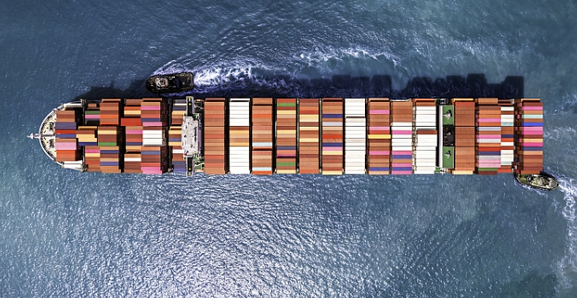How big is the Red Sea crisis for the global economy?
Based on this, shipping companies have announced surcharges, with global shipping companies such as Maersk, MSC, CMA CGM and Hapag-Lloyd all saying they would impose additional charges on ships diverted by the Red Sea ship attacks. These include Transport Disruption Surcharge (TDS), Red Sea Surcharge (RSC), Emergency Operations Surcharge (EOS), Operations Recovery Surcharge (OCR), Peak season Surcharge (PSS) and more.
Maersk said it expects a total additional charge of $700 for a 20-foot standard container shipped from China to Northern Europe, including $200 for TDS and $500 for PSS, and $500 for each standard container shipped to the east coast of North America. This includes a $200 TDS payment and a $300 PSS.
Recently, a number of freight forwarders told reporters that they have received updates from a number of shipping companies on the spot market rates, and the rates of many European routes and Mediterranean routes in early January next year have doubled compared with the end of December.

In addition, ships that still sail through the Red Sea need to buy more expensive insurance. It is understood that the insurance market estimates that the war risk rate has increased from 0.07% to 0.1% to 0.2%. The increase in time, fuel, insurance and other costs will inevitably lead to higher freight costs. Xia Haofei, founder of Jian Yi Yun, told reporters that the result of the initial communication of the liner company is that the freight rate of the European route rose from 1500 US dollars/container to 3500 US dollars/container in mid-January.
In addition, MSC, the world's largest liner company, announced that from January 1, 2024, the freight rate on the Mediterranean route will be adjusted to $5,000 per container. Industry insiders believe that this shows that the market has a strong expectation of rising shipping costs, and some industry analysts such as Xeneta even believe that Asia-Europe route freight rates may rise by 100%.
While freight prices are rising, energy prices are also rising.
Currently, about a fifth of the traffic through the Suez Canal is oil, either by ship or through the Sumed pipeline to Egypt, with crude oil and refined products transported in both ways totaling nearly 9 million barrels per day, or about 12 percent of total seaborne trade. Recently, as the situation in the Red Sea heats up, the European natural gas price, which has fallen for more than a year, has rebounded, and the European natural gas futures rose 13%; International oil prices, which fell for two months in a row, also began to rebound.
The cost of food and clothing is increasing
'No respite' for global inflation
It is worth noting that the situation in the Red Sea has also triggered a series of spillover effects.
The Red Sea is one of the important shipping lanes connecting Asia and Europe, and many commodities, such as oil, gas, chemical products, metal ores, grain, etc., are transported through this waterway. Therefore, the Red Sea shipping security incident will also have a certain impact on the transportation and prices of some commodities.
Taking the electric vehicle transport industry as an example, there are media reports that in view of the increased tensions in the Red Sea, Tesla electric vehicles from China to Europe by sea have chosen an alternative route, namely a detour of the Cape of Good Hope. It is reported that with the extension of the route, the transportation cost of electric vehicles will increase by about 20%. Xia Haofei said that from the point of view of China's exports to Europe, in addition to new energy vehicles, there are a large part of electronic products, clothing, toys and other goods, the added value of these goods is not high, so the high probability will choose a detour.
In addition, according to sources quoted by the media, if the Red Sea tensions do not improve, India may consider an alternative route to ship Basmati rice (also known as basmati rice) along Africa, which could increase prices by about 15 to 20 percent. The route is also likely to affect India's exports of long-grain rice to Egypt and Europe.
Finally, almost all of these price changes are reflected in the cost of food and clothing, and there is "no respite" for global inflation.
The sudden disruption to global supply chains creates uncertainty at a time when the world's major central banks are considering normalizing monetary policy. There are comments that if the shipping disruption is only brief, consumers may not feel it significantly, except for a slight increase in gasoline prices. If this continues for a longer period, inflation could rise again in the first month of 2024.
- ABB
- General Electric
- EMERSON
- Honeywell
- HIMA
- ALSTOM
- Rolls-Royce
- MOTOROLA
- Rockwell
- Siemens
- Woodward
- YOKOGAWA
- FOXBORO
- KOLLMORGEN
- MOOG
- KB
- YAMAHA
- BENDER
- TEKTRONIX
- Westinghouse
- AMAT
- AB
- XYCOM
- Yaskawa
- B&R
- Schneider
- Kongsberg
- NI
- WATLOW
- ProSoft
- SEW
- ADVANCED
- Reliance
- TRICONEX
- METSO
- MAN
- Advantest
- STUDER
- KONGSBERG
- DANAHER MOTION
- Bently
- Galil
- EATON
- MOLEX
- DEIF
- B&W
- ZYGO
- Aerotech
- DANFOSS
- Beijer
- Moxa
- Rexroth
- Johnson
- WAGO
- TOSHIBA
- BMCM
- SMC
- HITACHI
- HIRSCHMANN
- Application field
- XP POWER
- CTI
- TRICON
- STOBER
- Thinklogical
- Horner Automation
- Meggitt
- Fanuc
- Baldor
- SHINKAWA
- Other Brands




































































































































